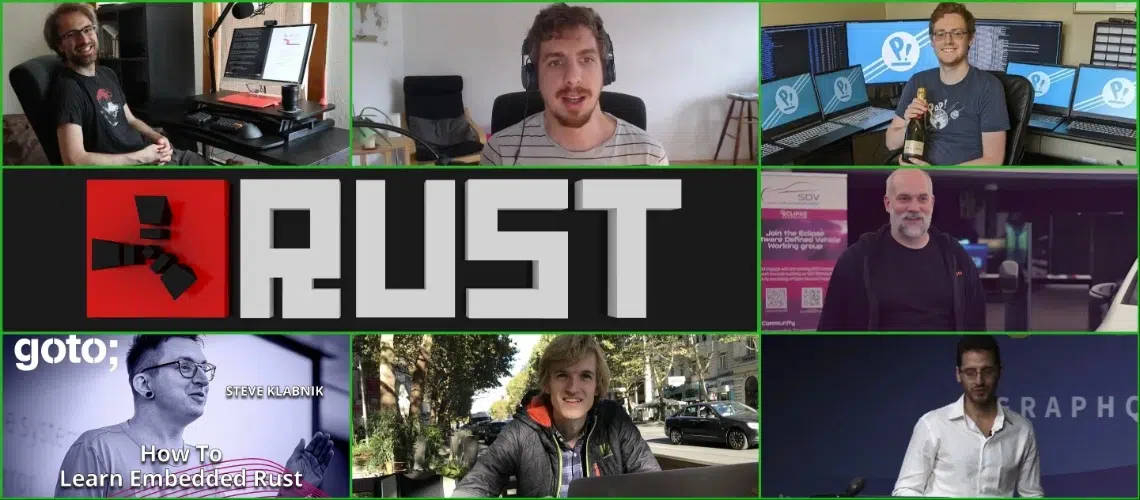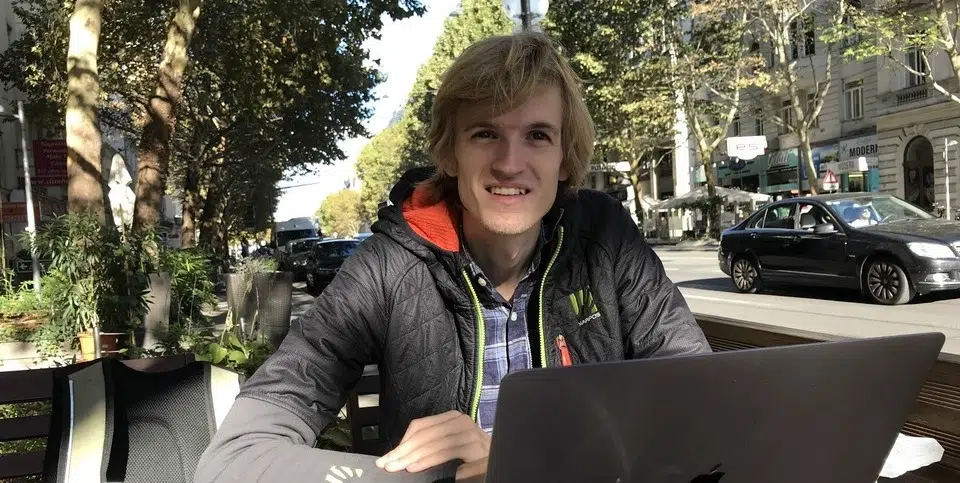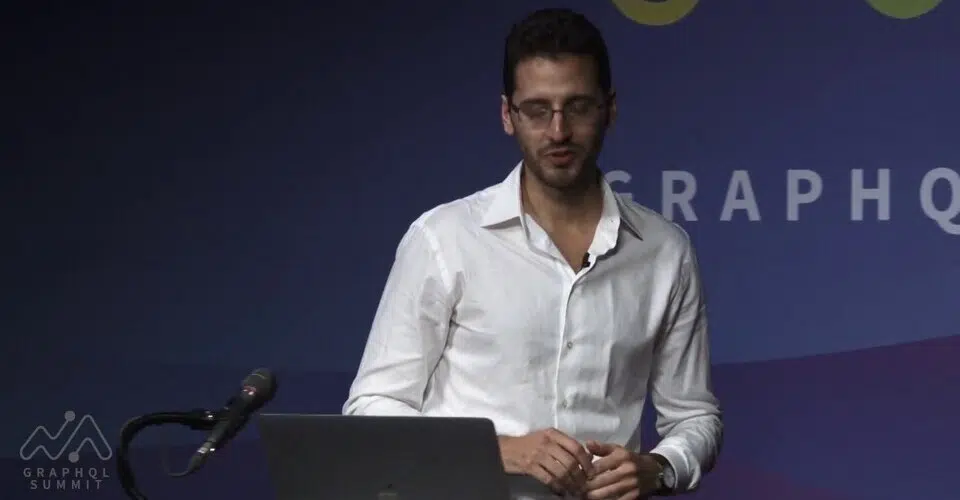20 Best Rust Developers for High-Perf Projects

Rust has redefined what’s possible in systems programming – offering memory safety, fearless concurrency, and high performance without a garbage collector.
Behind this revolution stands a vibrant global community of innovators who are not only pushing Rust forward, but proving its potential across a range of domains. From foundational language designers and open-source trailblazers to startup CTOs still writing code, influential educators, Web3 pioneers, and competitive programming champions, these individuals have helped make Rust what it is today.
Below is an updated and curated list of the world’s best Rust developers, selected for their impact on the ecosystem, their technical leadership, and their ongoing contributions to the community.
- Steve Klabnik
- Raph Levien
- Josh Triplett
- Armin Ronacher
- Andrew Gallant
- Nicholas Matsakis
- Syrus Akbary
- Frank McSherry
- Jeremy Soller
- Gavin Wood
- Ashley Williams
- Florian Gilcher
- Carol Nichols
- Bryan Cantrill
- Jon Gjengset
- Miguel Ojeda
- Ryan Levick
- Luis Soares
- Mara Bos
- Carl Lerche
Now, let’s delve into their profiles and contributions:
Steve Klabnik

Nationality: United States
Steve is a prominent open-source contributor who co-authored “The Rust Programming Language” book (informally “The Book”), Rust’s primary learning resource.
An early member of the Rust core team, he led Rust’s documentation and community efforts, helping to establish Rust’s renowned tooling and developer experience. Klabnik has since transitioned to industry as an engineer at Oxide Computer Company, where he applies Rust to building next-generation server hardware/software.
He remains an active Rust evangelist, bridging the gap between systems programming in Rust and real-world production needs.
- X (Twitter): @steveklabnik
- Github: steveklabnik
- Website/Blog: steveklabnik.com
Raph Levien
Nationality: United States
Raph is a research engineer at Google and a veteran open-source developer with 7+ years in the Rust community.
He led development of the xi-Editor, a high-performance text editor written in Rust, and co-created Druid, a Rust-native UI toolkit. Levien has contributed to Rust’s graphics and text rendering capabilities, including work on font rasterization (GPU font rendering for Google Fonts) and the popular Markdown parser pulldown-cmark. With a PhD on interactive graphics, Levien brings academic rigor to Rust projects.
He shares his insights via his blog “raphlinus” and frequent talks, influencing GUI and graphics development in RUST.
- Linkedin: Raph Levien
- Github: raphlinus
- Website/Blog: levien.com
Josh Triplett
Rust is the future of systems programming; C is the new Assembly.
Nationality: United States
Josh is a principal engineer who has been a co-leader of Rust’s language design and an evangelist for Rust within industry.
At Intel, he spearheaded initiatives to bring Rust to parity with C for low-level systems work. Triplett is known for his memorable quote that “Rust is the future of systems programming, C is the new Assembly.” In Rust’s open source governance, he served on the core team and pushed for features like impl Trait and const generics. He also contributes to Cargo and libraries.
Through conference keynotes and working groups, Triplett advocates for using Rust in everything from firmware and OS development to large-scale services.
- Linkedin: Josh Triplett
- X (Twitter): @josh_triplett
- Github: joshtriplett
- Website/Blog: joshtriplett.org
Armin Ronacher

Nationality: Austria
Armin is a polyglot developer best known as the creator of the Python Flask framework, who has since become a driving force for Rust adoption at Sentry.
As a senior engineer at Sentry (2013–2022), Ronacher introduced Rust for critical components like the sentry-cli and parts of their backend, leveraging its speed and safety. He frequently speaks about using Rust alongside Python, and even after a decade at Sentry he continues to explore Rust in systems programming. On his blog, Armin documented Rust’s role at Sentry (“Rust at Sentry, 7 Years Later”) and champions Rust for low-latency systems.
His cross-language expertise and open-source ethos have inspired many Python developers to embrace Rust.
- Linkedin: Armin Ronacher
- X (Twitter): @mitsuhiko
- Github: mitsuhiko
Andrew Gallant
Nationality: United States
Andrew is the developer behind Rust’s fastest search tools and regex engine.
He created the popular ripgrep tool, a line-oriented code searcher used in VS Code, known for outpacing alternatives like grep and The Silver Searcher. Gallant also wrote Rust’s regex crate, leveraging finite automata to guarantee linear-time matching. Formerly a core contributor to Rust at Mozilla, he now applies his expertise at Astral, where he’s helping build the ruff linter for Python in Rust.
Gallant’s work exemplifies high-performance systems in Rust, and he’s an active community voice.
- X (Twitter): @burntsushi5
- Github: BurntSushi
Nicholas Matsakis
Nationality: United States
Nicholas “Niko” is a senior principal engineer at AWS and co-lead of Rust’s language design team.
Active on the Rust project since 2011, he’s shaped the language’s core – particularly its powerful type system and the compiler’s implementation. Matsakis previously worked at Mozilla (and Dropbox) where he helped drive Rust from research to production.
He remains one of Rust’s most influential architects and thought leaders, regularly sharing insights through talks and his “Small Cult Following” blog.
- Linkedin: Nicholas Matsakis
- Github: nikomatsakis
Syrus Akbary

Nationality: Spain
Syrus is an entrepreneur and engineer who founded Wasmer, a popular WebAssembly runtime written in Rust.
With Wasmer, Akbary’s vision is to enable “web assembly everywhere”, allowing universal binaries to run from cloud to edge, all powered by Rust’s performance and safety. He’s also known in the Python community for creating Graphene (GraphQL for Python) before turning to Rust and WebAssembly full-time. Syrus actively writes about WebAssembly and systems architecture, and under his leadership Wasmer reached a 1.0 release after two years of rapid development.
His work demonstrates Rust’s strength in emerging runtime environments, bridging the gap between high-level and systems-level programming.
- Linkedin: Syrus Akbary
- X (Twitter): @syrusakbary
- Github: syrusakbary
- Website/Blog: syrusakbary.com
Frank McSherry
Nationality: United States
Frank is a computer scientist and co-founder of Materialize, renowned for his work on real-time data processing in Rust.
He created Differential Dataflow, an advanced framework for incremental computation, built on Rust’s Timely Dataflow library. This work, begun during his time at Microsoft Research, showcased Rust’s capacity for high-throughput, parallel data crunching. At Materialize, McSherry’s research was commercialized into a streaming SQL database (Materialize) that maintains results incrementally – much of its core is implemented in Rust for efficiency and safety.
Frank often shares insights on concurrency and memory management in Rust, and his contributions have significantly influenced the big-data ecosystem to consider Rust for complex, stateful computations.
- Linkedin: Frank McSherry
- Github: frankmcsherry
- Website/Blog: frankmcsherry.org
Jeremy Soller

Nationality: United States
Jeremy is the lead developer of Redox OS, an ambitious project to build a Unix-like operating system in Rust from scratch.
As Redox’s BDFL (Benevolent Dictator for Life), Soller has overseen development of its microkernel, filesystems, and GUI, demonstrating Rust’s capability to produce a secure, modern OS. Jeremy is also a Principal Engineer at System76, where he maintains Pop!_OS (Linux distro) and works Rust into firmware and hardware enablement (e.g., Coreboot porting). A passionate open-source hacker, he advocates for memory-safe languages in systems software and often shares updates on Redox’s progress.
Soller’s work proves out Rust’s viability all the way down to the operating system level.
- Linkedin: Jeremy Soller
- Github: jackpot51
- Website/Blog: soller.dev
Gavin Wood
Nationality: United Kingdom
Gavin is a blockchain technologist who utilizes Rust to push boundaries in decentralized systems.
A co-founder and former CTO of Ethereum, Wood went on to create Polkadot, a next-generation blockchain network coded in Rust (via the Substrate framework). At Parity Technologies, which he co-founded, Wood led development of the Parity Ethereum client written in Rust (launched in 2016). He also authored the Ethereum Yellow Paper and the Polkadot white paper, showcasing deep expertise in both theory and implementation.
Gavin’s advocacy for Rust in blockchain has influenced many projects to choose Rust for its safety and performance, making him a key figure in both the Web3 and Rust communities.
- Linkedin: Gavin Wood
- X (Twitter): @gavofyork
- Github: gavofyork
- Website/Blog: gavwood.com
Ashley Williams
Nationality: United States
Ashley is a community leader and infrastructure engineer who was the founding Executive Director of the Rust Foundation.
A former Rust Core Team member, she chaired Rust’s crates.io team and led efforts in Rust’s WebAssembly working group. Williams championed initiatives like RustBridge and “Increasing Rust’s Reach” to make Rust more accessible to underrepresented communities. She previously worked at npm, Mozilla, and Cloudflare, always bridging web technologies and Rust.
Ashley is a frequent conference speaker, and her passion for systems thinking and community building has been instrumental in Rust’s growth and organizational stability.
- Linkedin: Ashley Williams
- X (Twitter): @ag_dubs
- Github: ashleygwilliams
Florian Gilcher

Nationality: Germany
Florian is a co-founder and managing director of Ferrous Systems, a consultancy devoted to Rust, and a former member of Rust project leadership.
Active in the community since Rust’s early days, he helped organize Rust conferences (RustFest, RustConf EU) and served on the board of the Rust Foundation. Florian has focused on bringing Rust into the functional safety and embedded systems arena – Ferrous’s Ferrocene project aims to certify Rust for use in automobiles and medical devices. As a trainer, Gilcher has taught Rust to hundreds of developers and is a frequent speaker on topics like Rust in automotive and open source sustainability.
His advocacy in Europe has been pivotal for Rust’s global growth.
- Linkedin: Florian Gilcher
- Github: skade
Carol Nichols
Nationality: United States
Carol is co-author of “The Rust Programming Language” and a former member of the Rust Core Team.
She helped cultivate Rust’s global community, serving on the community team and co-founding the world’s first Rust consultancy, Integer 32. Nichols has organized events like Rust Belt Rust and pushed initiatives to grow Rust’s reach among developers. Her contributions span from improving Rust’s crates.io package ecosystem to mentoring newcomers.
As of today, she also serves on the Rust Foundation board, continuing to advocate for Rust’s adoption and sustainability.
- Linkedin: Carol Nichols
- Github: carols10cents
- Website/Blog: carol-nichols.com
Bryan Cantrill
Nationality: United States
Bryan , the CTO and co-founder of Oxide Computer Company, is a veteran systems engineer who has become one of Rust’s most prominent champions in industry.
Famous for his earlier work on Solaris/illumos and DTrace, Cantrill now leads Oxide’s effort to build an entire hardware/software stack in Rust – including a new Rust-based firmware/OS called Hubris. He frequently speaks on Rust’s advantages, calling it a “quantum leap over C” for system software.
Bryan’s influence extends Rust’s reach into areas like enterprise hardware, and his enthusiasm (“Rust is as revolutionary as C”) has inspired many C/C++ developers to make the switch to Rust.
- Linkedin: Bryan Cantrill
- X (Twitter): @bcantrill
Jon Gjengset

Nationality: Norway
Jon is a prominent Rust educator and engineer who has made Rust accessible to thousands via live coding and books.
He is the author of “Rust for Rustaceans”, an intermediate-advanced book acclaimed for its depth. Jon built his PhD thesis project (a fast concurrent SQL database) in Rust, later working at AWS to own internal Rust infrastructure. He is best known for his YouTube series “Crust of Rust”, where he live-codes real-world projects (like building a git clone or a database) – demystifying complex Rust concepts in real time.
Now a Principal Engineer at Helsing AI, Gjengset continues to champion Rust in industry while producing free educational content, embodying the scholar-practitioner spirit of the Rust community.
- Linkedin: Jon Gjengset
- X (Twitter): @jonhoo
- Github: jonhoo
- Website/Blog: thesquareplanet.com
Miguel Ojeda
Nationality: Spain
Miguel is the lead developer driving the effort to add Rust code to the Linux kernel.
A former physics researcher turned software engineer, Ojeda has been working full-time on the Rust-for-Linux project since 2021, funded by Google and the ISRG. He authored the initial RFC to include Rust in the kernel and has guided its progress, focusing on safety-critical components like drivers. Miguel also created the rustc_codegen_gcc project (enabling Rust to target GCC).
His diligent work is making it possible for parts of the world’s most used OS kernel to be written in memory-safe Rust – a monumental shift in systems programming.
- Linkedin: Miguel Ojeda
- Github: ojeda
- Website/Blog: ojeda.dev
Ryan Levick

Nationality: United States
Ryan is a Principal Developer Advocate at Microsoft, focused on promoting Rust for systems and cloud development.
He creates extensive educational content, from his YT channel (covering Rust from beginner to advanced) to live-coding sessions on Microsoft Reactor. Ryan has been involved in Rust’s open source governance (Rust project alumni) and often speaks at conferences about Rust’s adoption at Microsoft and in Windows. He’s particularly known for explaining Rust’s tricky concepts (ownership, lifetimes, async) in an accessible way – his talk “Rust: Moving beyond Hello World” on Microsoft’s platform is a popular primer.
Levick’s advocacy has helped Rust gain official support in Microsoft’s tooling and services, bridging the gap between the Rust community and corporate developers.
- Linkedin: Ryan Levick
- X (Twitter): @ryan_levick
- Github: rylev
- Website/Blog: ryanlevick.com
Luis Soares
Nationality: Portuguese
Luis is a Senior Rust Engineer at Neon Labs who specializes in building secure, high-performance blockchain and decentralized systems.
Across Solana (Anchor), Sui/Move, Cosmos/CosmWasm, and Substrate/Polkadot, he designs DeFi protocols, ZK-enabled components, and cross-chain bridges – consistently implemented in Rust. He also shares hands-on expertise with the community through deep-dive posts and a Rust eBook, notably his LinkedIn Pulse article “Mastering Generics in Rust: A Hands-On Guide”.
Backed by 23+ years in software and prior Rust work at Thoughtworks and Credit Suisse, he prioritizes performance, safety, and cryptography to deliver scalable web3 infrastructure.
- Linkedin: Luis Soares
Mara Bos
Nationality: Netherlands
Mara is the team lead of Rust’s standard library team and a member of the Rust leadership council.
An expert in low-level concurrency, she authored “Rust Atomics and Locks”, sharing deep knowledge on threading and synchronization. Mara is also a founder of the Rust-focused firm Ferrous Systems (and its spin-off Hexcat), where she drives efforts to bring Rust into safety-critical and embedded domains. She’s a highly visible Rust educator and maintainer, steering key improvements to the language and its libraries.
Bos’s work exemplifies leadership in both the community and technical governance of Rust.
- Linkedin: Mara Bos
- X (Twitter): @m_ou_se
- Github: m-ou-se
- Website/Blog: marabos.nl
Carl Lerche
Nationality: United States
Carl is best known as the creator of Tokio, the asynchronous runtime that underpins a large share of Rust’s networking and async application stack. Tokio’s own documentation positions it as the community-built foundation for async I/O, scheduling, timers, and network services in Rust.
He has also built out core pieces of Rust’s async ecosystem through related libraries and projects, and AWS describes him as a Principal Engineer leading development on the Tokio stack. His writing and talks tend to focus on practical async ergonomics and the tradeoffs involved in high-throughput production systems.
- Linkedin: Carl Lerche
- X (Twitter): @carllerche
- Github: carllerche
- Website/Blog: carllerche.com
Wrap Up
These experts represent exceptional talent, making them extremely challenging to headhunt. However, there are thousands of other highly skilled IT professionals available to hire with our help. Contact us, and we will be happy to discuss your hiring needs.
Note: We’ve dedicated significant time and effort to creating and verifying this curated list of top talent. However, if you believe a correction or addition is needed, feel free to reach out. We’ll gladly review and update the page.
Frequently Asked Questions
Rust is growing. It has become popular for its memory safety, performance, and reliability, and is increasingly adopted for systems programming, backend services, and blockchain projects.
In the United States, Rust developers typically earn $110,000 to $150,000 per year. Hourly contract rates range from $55 to $110 depending on experience and project complexity. Rates in Eastern Europe and Latin America are generally lower.
A Rust subject matter expert is usually a systems or backend engineer with deep knowledge of concurrency, memory management, and performance optimization. Contributors to the Rust open-source ecosystem or developers with production-scale Rust projects are strong indicators of expertise.
Yes, the Rust talent pool is smaller compared to more established languages. While interest is growing, experienced Rust developers are still relatively rare and can be harder to hire.
Rust is used by companies such as Mozilla, Dropbox, Cloudflare, Discord, and Amazon Web Services, as well as many startups in security, networking, and blockchain.
